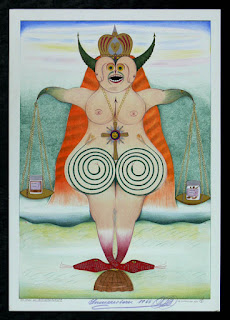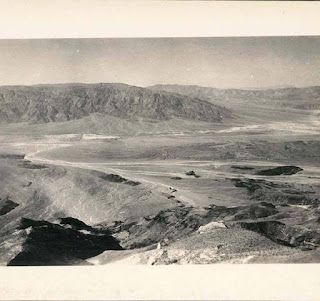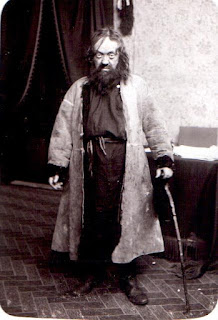




• Friedrich Schröder-Sonnenstern was born in 1892 in Kuckerneese, near Tilsit, Lithuania. He had a troubled youth and spent much time in correctional institutions, including five months in a mental asylum in 1910 where he was declared insane. He was again institutionalized in 1917 after an arrest for smuggling. After these episodes, he took the identity of the “Esteemed Professor Dr. Eliot Gnass von Sonnenstern, Psychologist of the University Sciences,” and became a healer and fortuneteller. Rather than keeping the profits he made through these ventures, he gave the money he made to the poor. Despite the beneficent attitude of these schemes, he was arrested for his fraudulent medical practice. While incarcerated, he met an artist who inspired him to draw, and in 1949 Sonnenstern moved to Berlin where this became his primary activity. He found success with his sharp and often sexually charged imagery, and by 1959 was earning a considerable income from his work. Sonnenstern died in Berlin in 1982. Link…














































